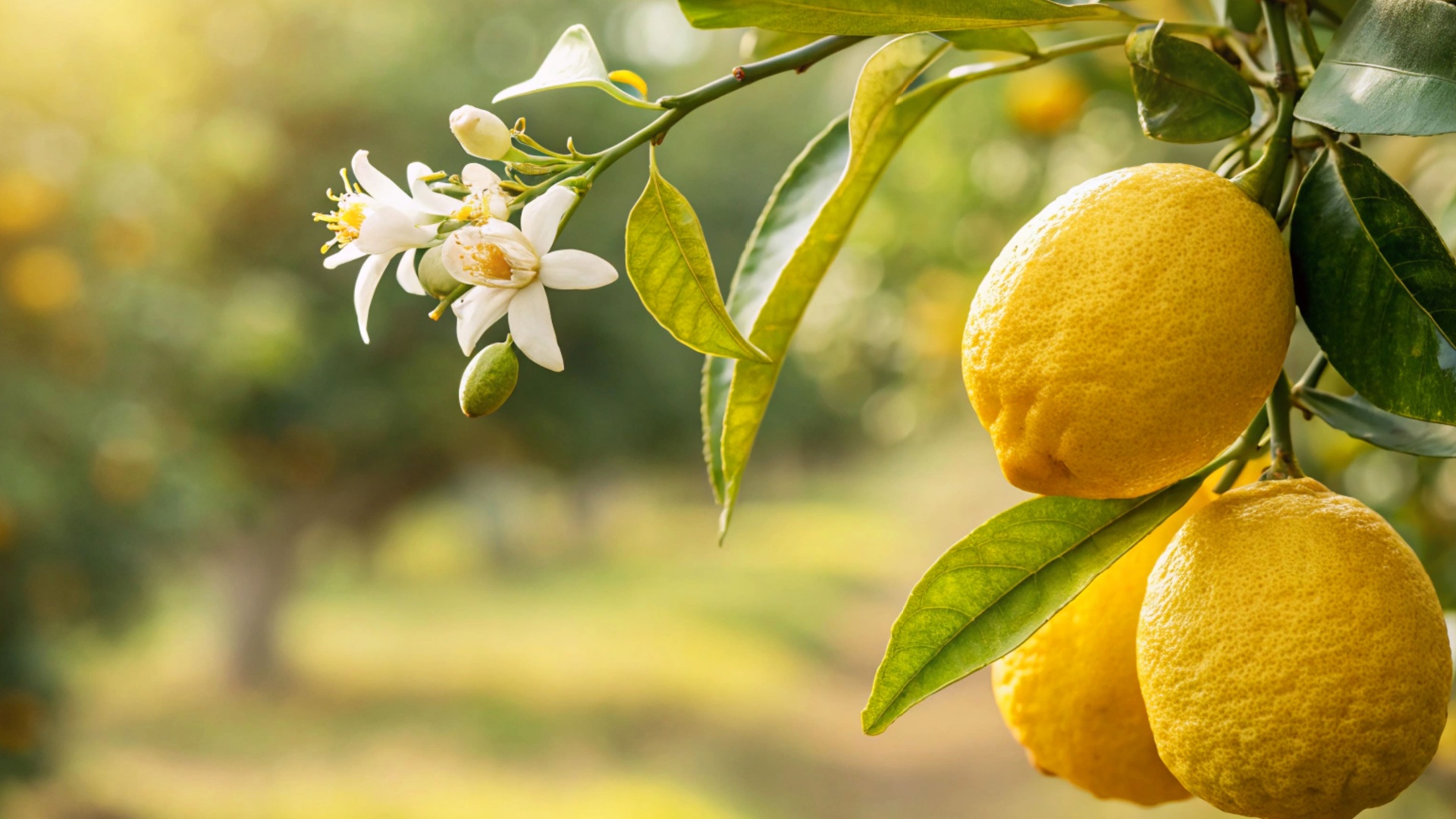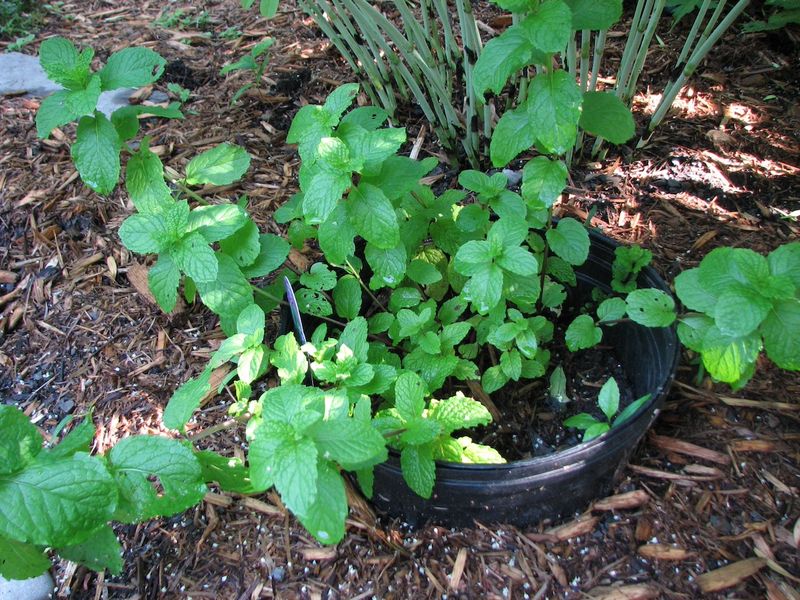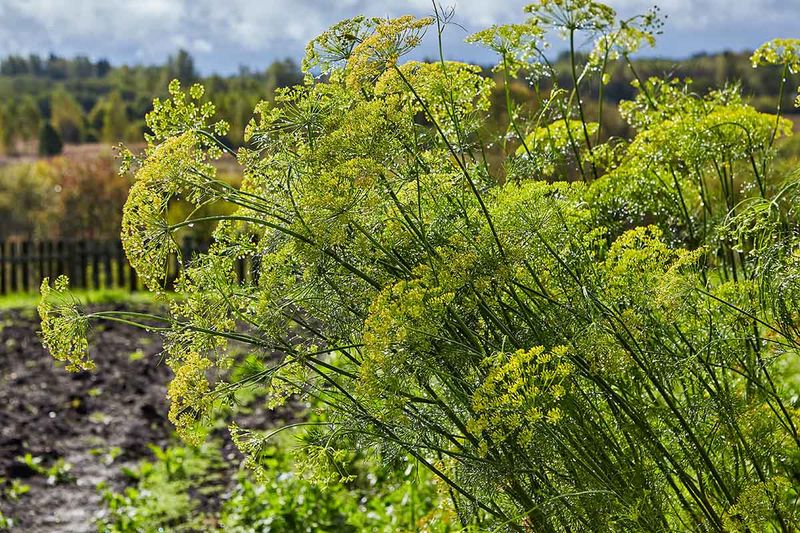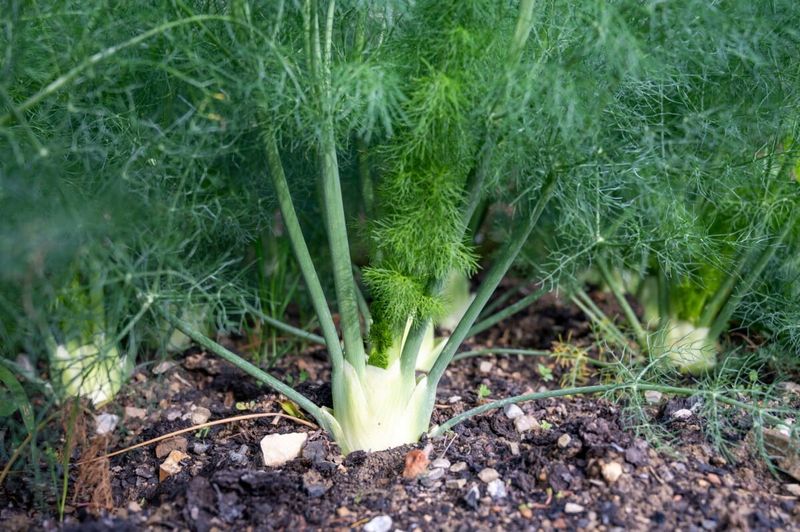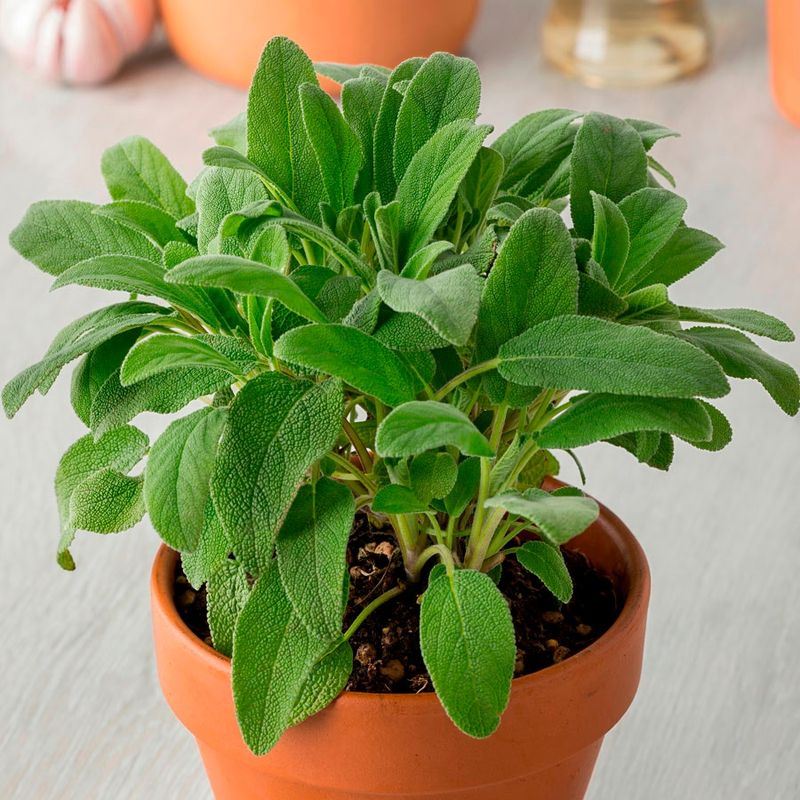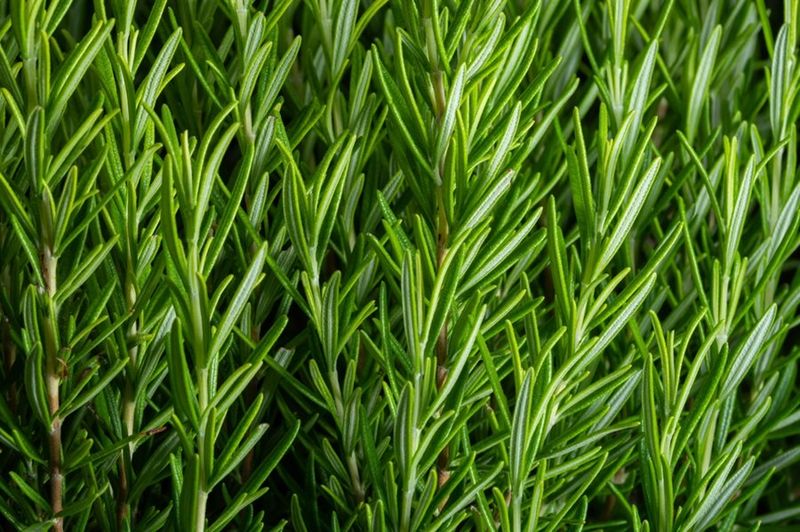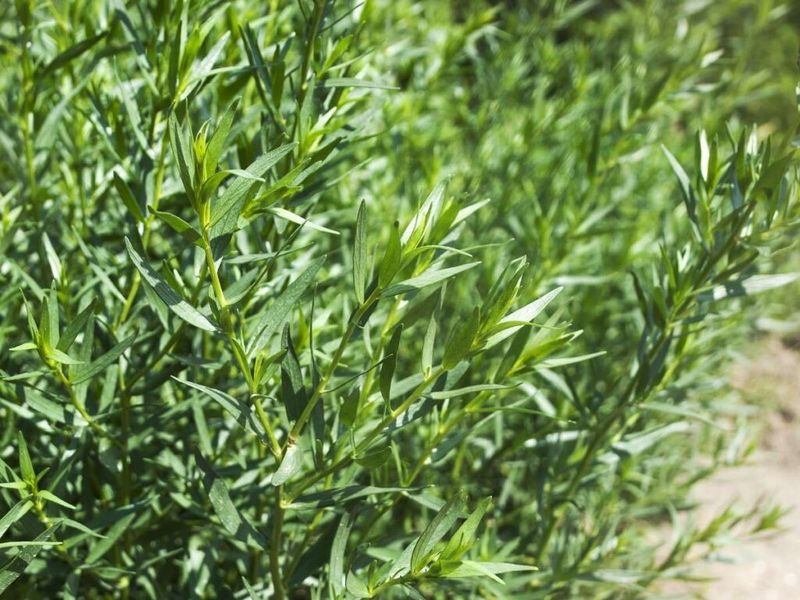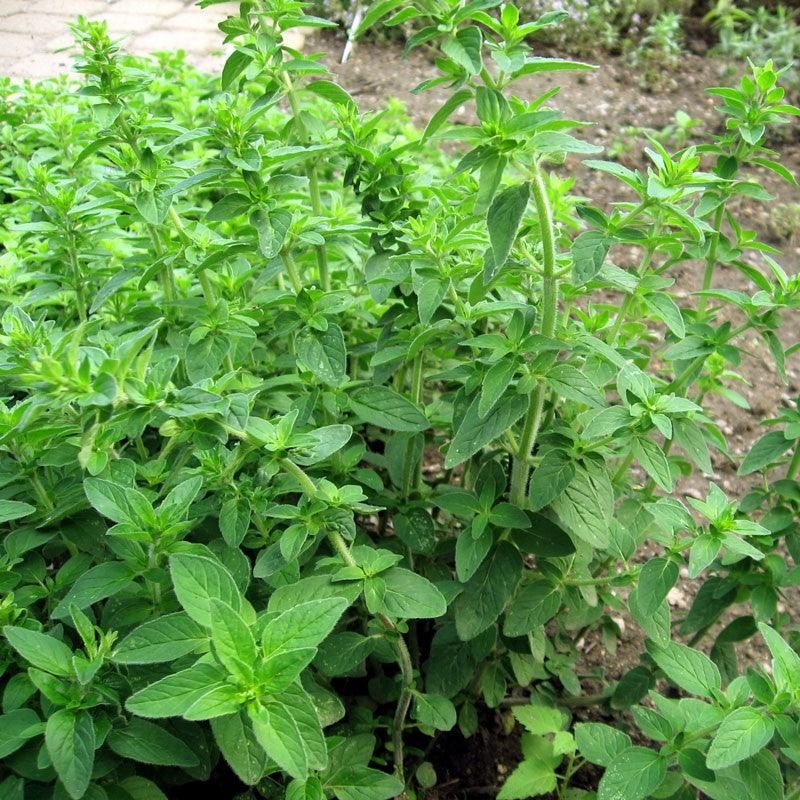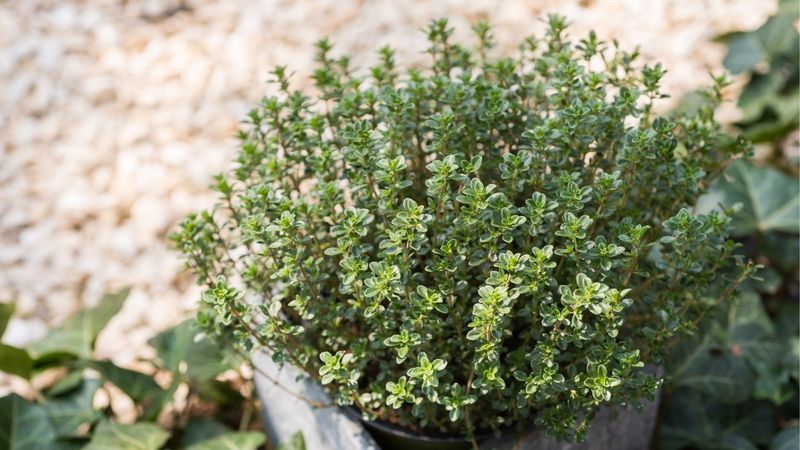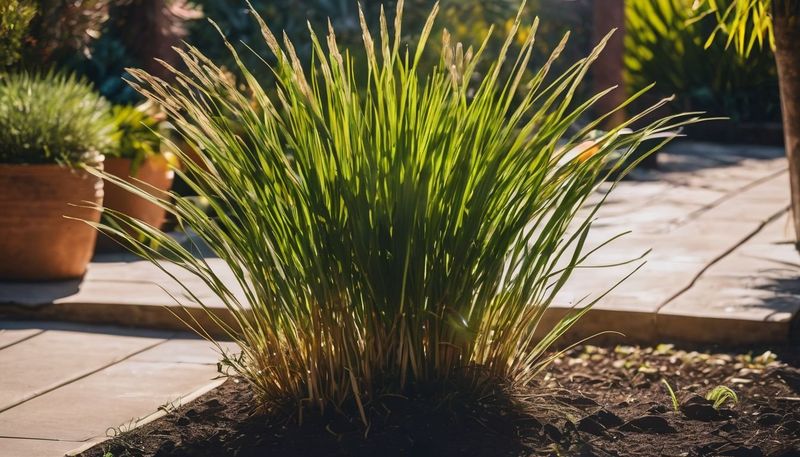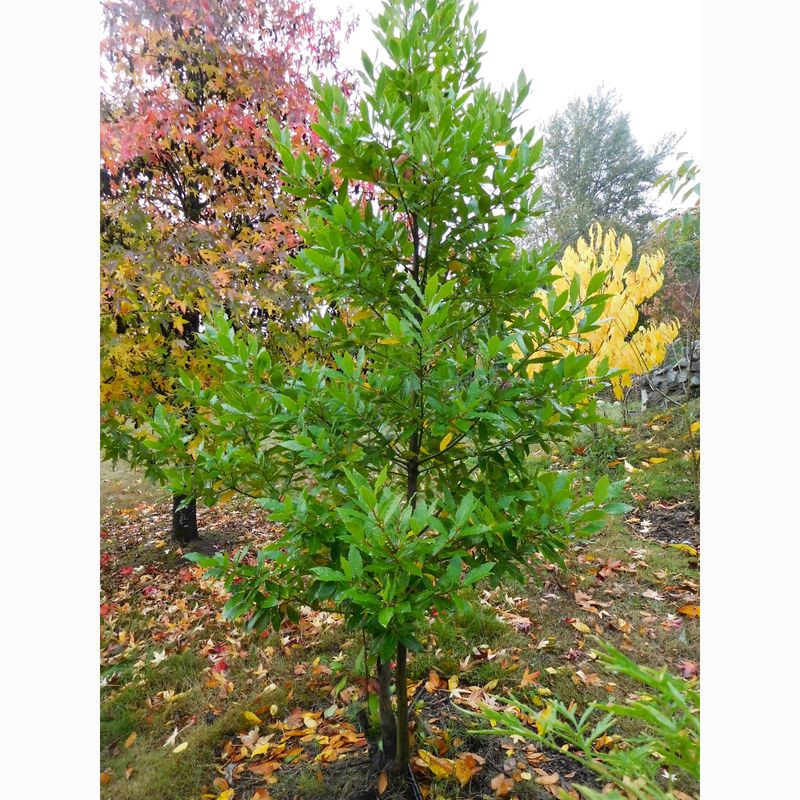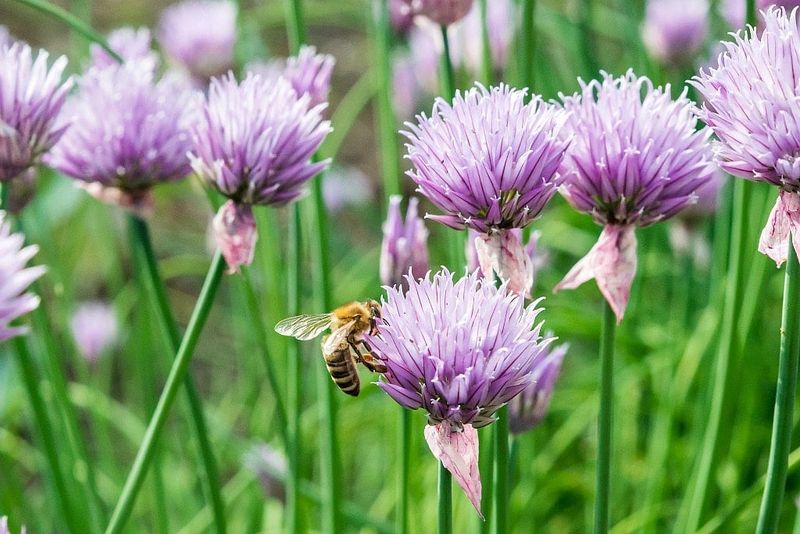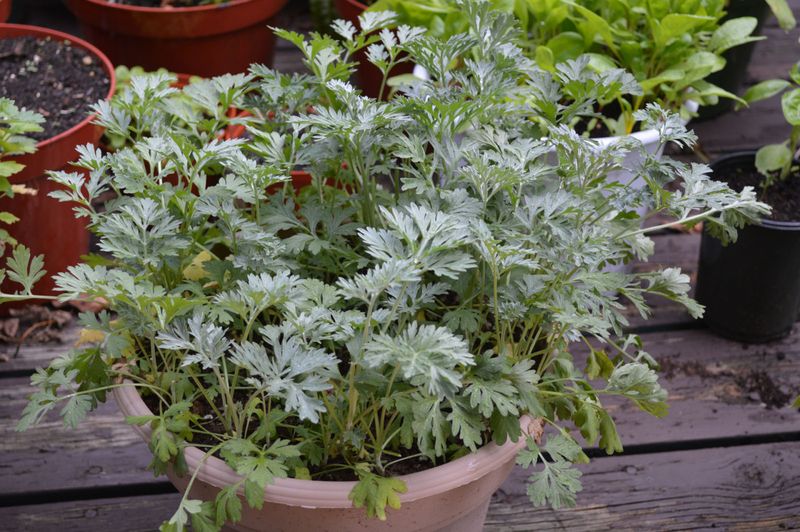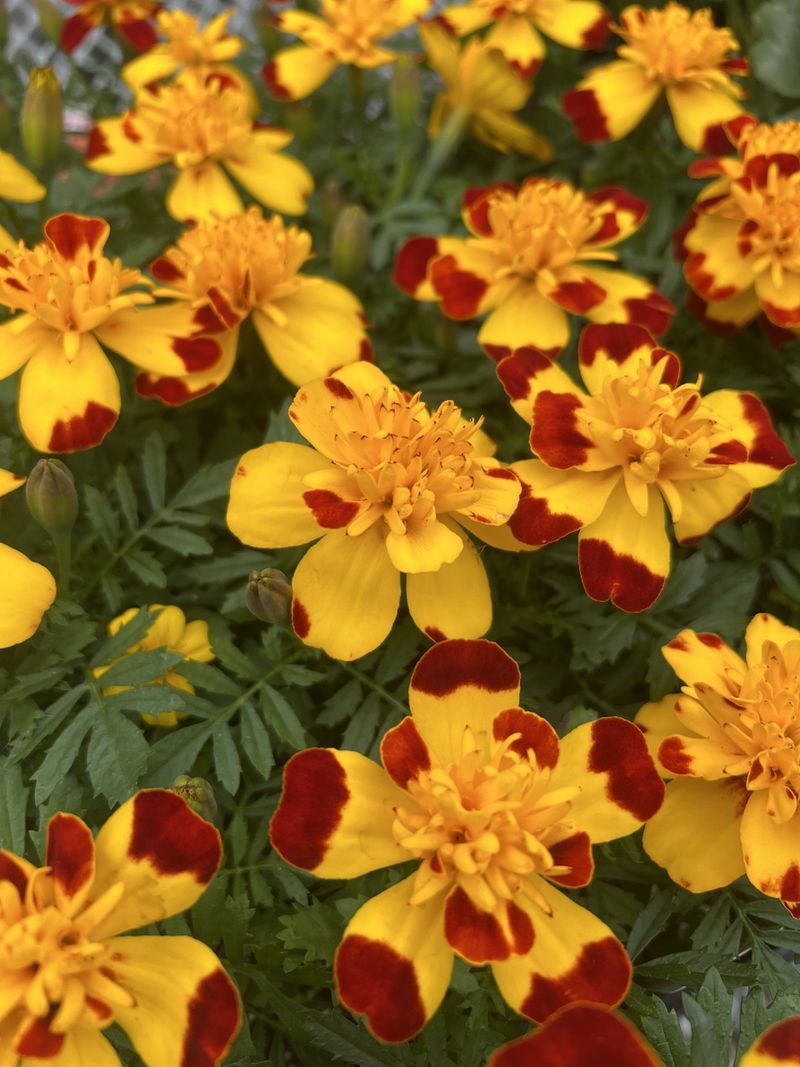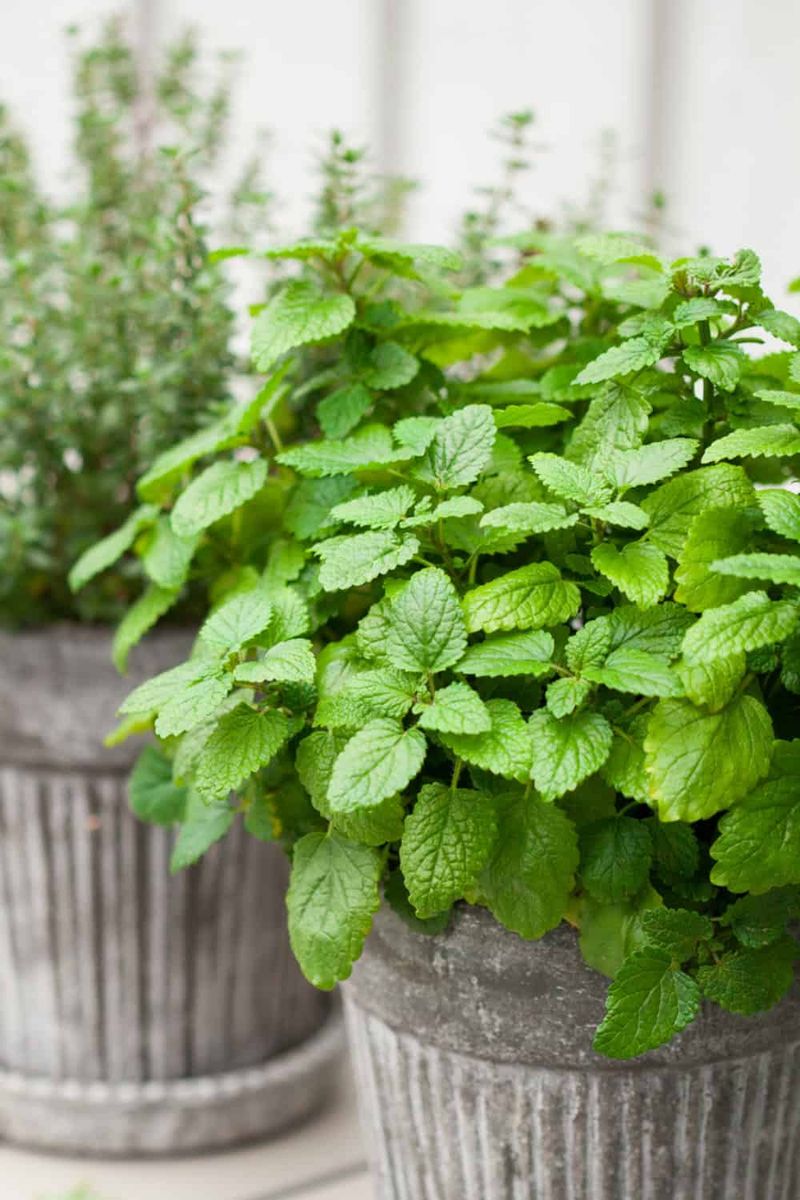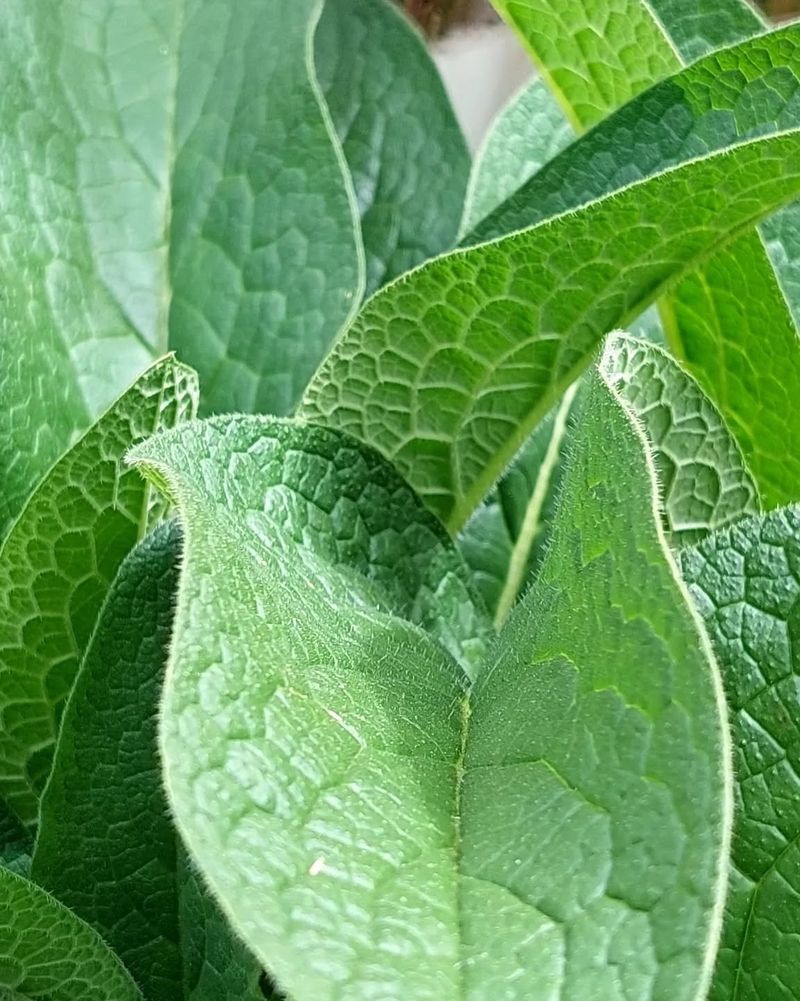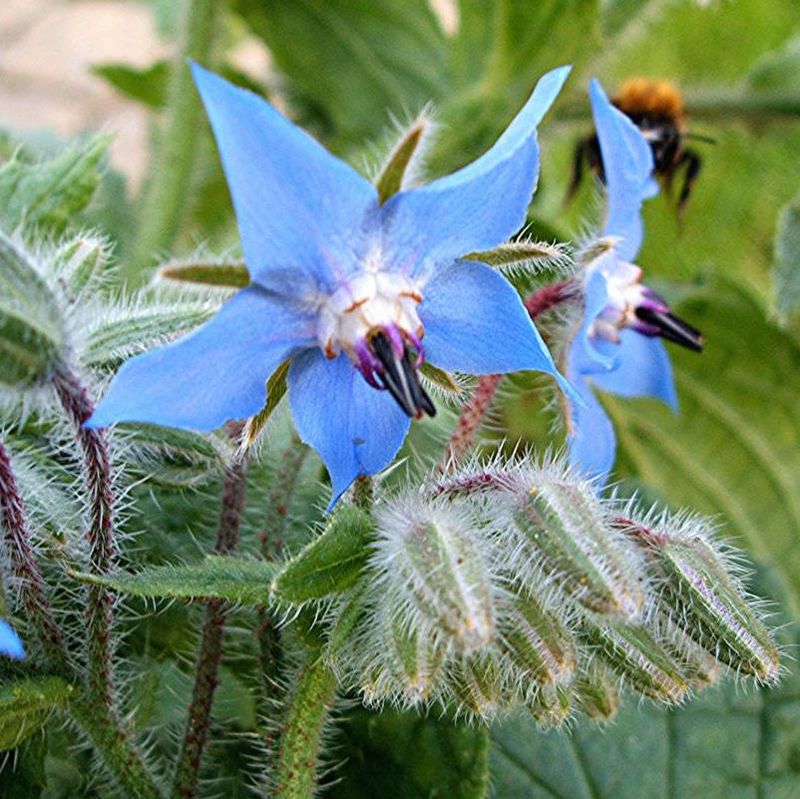Not all herbs play nice in the garden. While some are lemon tree lifelines, others can quietly sabotage your soil, roots, and fruit. If your lemon tree is looking lackluster, these 12 common herbs might be the hidden culprits.
Don’t worry—we’ve got 5 garden-friendly alternatives to help your citrus thrive again!
1. Mint: The Underground Invader
Mint’s aggressive underground runners spread rapidly beneath soil, competing directly with your lemon tree’s roots for water and nutrients. These speedy rhizomes can quickly colonize the entire root zone.
Garden mint also releases allelopathic compounds that inhibit root development in nearby plants, including your citrus. The result? A stressed lemon tree with yellowing leaves and reduced fruit production.
If you’ve planted mint nearby, consider containing it in buried pots or moving it far from your citrus grove.
2. Dill: The Unwelcome Attractor
Flowering dill becomes a magnet for citrus leaf miners and other pests that can severely damage your lemon tree. The delicate umbrella-shaped flowers attract these harmful insects directly into your garden.
Beyond pest problems, dill’s feathery foliage creates dense shade when planted too close to young lemon trees, potentially reducing photosynthesis. The herb also depletes calcium from surrounding soil—a vital nutrient for lemon tree health.
Many gardeners don’t realize dill can self-seed aggressively, creating unwanted competition year after year.
3. Fennel: The Toxic Neighbor
Fennel releases potent chemicals into the soil that inhibit growth in nearby plants, including your precious lemon tree. This natural defense mechanism, called allelopathy, can stunt your citrus and reduce fruit yield substantially.
The tall feathery plant also creates unwanted shade for shorter lemon trees. Young trees especially suffer when competing with fennel’s extensive root system that aggressively seeks out water and nutrients.
Despite its culinary value, fennel should be planted far from your citrus grove to avoid these harmful interactions.
4. Sage: The Water Thief
Sage’s deep, extensive root system competes directly with your lemon tree for precious water resources. During dry spells, this Mediterranean herb shows no mercy, often leaving citrus trees parched and stressed.
The aromatic oils that make sage so wonderful in cooking actually accumulate in the soil over time. These compounds can inhibit beneficial soil microorganisms that your lemon tree depends on for nutrient uptake.
Mature sage plants become woody and demanding, creating a challenging environment for nearby citrus trees trying to establish themselves.
5. Rosemary: The Soil Acidifier
Rosemary gradually changes soil pH as its needle-like leaves decompose, creating more acidic conditions than lemons prefer. While lemon trees tolerate slightly acidic soil, the continued pH shift can lock up essential nutrients.
The herb’s woody roots grow surprisingly dense and competitive, often winning the underground battle against citrus trees. Mature rosemary bushes can reach impressive sizes, casting shade over smaller lemon trees.
Many gardeners underestimate how quickly rosemary establishes and becomes difficult to remove from near established trees without damaging citrus roots.
6. Tarragon: The Nutrient Hoarder
Tarragon’s sprawling root system aggressively competes for potassium and phosphorus—two minerals crucial for lemon flowering and fruit development. The herb’s efficiency at nutrient uptake often leaves nearby citrus trees deficient.
French tarragon in particular releases compounds that can suppress beneficial soil fungi that help lemon trees absorb nutrients. Over time, this creates an invisible barrier to your tree’s health.
The herb’s dense growth habit also reduces air circulation around lower lemon branches, potentially increasing humidity and disease pressure on your citrus.
7. Oregano: The Space Invader
Oregano’s creeping habit allows it to form dense mats around the base of lemon trees, competing for surface water and preventing it from reaching citrus roots. During rainy periods, this ground cover can trap moisture against the trunk, potentially causing fungal problems.
The herb’s allelopathic properties subtly suppress seedling growth and can weaken young lemon trees. Many gardeners don’t notice the connection between their struggling citrus and nearby oregano patches.
Removing established oregano from around lemon trees becomes increasingly difficult without disturbing shallow citrus roots.
8. Thyme: The Shallow Root Competitor
Thyme creates a dense mat of shallow roots that directly compete with your lemon tree’s feeder roots for water and nutrients. This competition becomes especially problematic during the critical spring growth period when both plants are actively growing.
The herb’s low-growing habit might seem harmless, but it prevents water penetration to deeper soil layers during light rainfall events. Young lemon trees especially suffer from this intercepted moisture.
Thyme’s aromatic compounds can also deter beneficial soil organisms that would otherwise help your citrus tree thrive in challenging conditions.
9. Lemongrass: The Deceptive Namesake
Don’t let the name fool you—lemongrass is actually a terrible companion for lemon trees! This tropical grass forms dense, water-hungry clumps that outcompete citrus roots for moisture and nutrients during critical growing periods.
The tall stalks create unwanted shade when planted too close to young lemon trees. Even more problematic, lemongrass attracts certain sap-sucking insects that can easily transfer to your citrus.
Its sharp-edged leaves can also physically damage low-hanging lemon branches when blown by wind, creating entry points for disease.
10. Bay Laurel: The Towering Threat
Bay laurel might start small, but this herb grows into a substantial tree that eventually towers over lemon trees, blocking essential sunlight. The dense canopy creates deep shade that significantly reduces citrus flowering and fruit production.
The herb’s leaf litter contains oils that break down slowly, potentially inhibiting soil microorganisms beneficial to your lemon tree. Bay’s extensive root system also competes aggressively for deep soil moisture during drought periods.
Many gardeners plant bay without realizing its ultimate size and competitive nature against citrus trees.
11. Chives: The Allium Antagonist
Chives belong to the allium family, which naturally repels beneficial insects that pollinate lemon blossoms. Fewer pollinators mean fewer fruits on your citrus tree each season.
The herb’s clumping growth habit seems harmless, but chives spread by underground bulblets that compete directly with lemon roots. Over time, established chive patches become difficult to remove without damaging nearby citrus roots.
Surprisingly, chives can also host certain viral diseases that may transfer to your lemon tree through sap-feeding insects that move between the plants.
12. Wormwood: The Chemical Warfare Specialist
Wormwood contains powerful compounds that actively suppress growth in neighboring plants—including your lemon tree! The herb releases these allelopathic chemicals from both its roots and decomposing leaves.
Even after removing wormwood, residual soil effects can continue to impact citrus health for months. Young lemon trees planted where wormwood previously grew often show stunted growth and nutrient deficiencies.
The bitter compounds in wormwood also repel beneficial insects while sometimes attracting citrus-damaging pests like certain scale insects and mites.
13. Marigolds: The Bright Defender
Unlike the harmful herbs mentioned earlier, marigolds make excellent lemon tree companions! Their bright flowers attract beneficial pollinators that help your citrus trees produce more fruit.
Marigold roots release compounds that deter harmful nematodes that might otherwise damage lemon tree roots. The plants’ strong scent also confuses and repels many common citrus pests, creating a natural protective barrier.
French marigold varieties work especially well, forming neat mounds that don’t compete aggressively with your lemon tree’s root system.
14. Lemon Balm: The Beneficial Namesake
Despite its spreading habit, lemon balm makes a wonderful citrus companion when properly managed. Its fragrant leaves confuse pests that locate lemon trees by scent, creating a natural protective barrier around your citrus.
Beneficial insects like parasitic wasps that control citrus pests are attracted to lemon balm’s tiny flowers. The herb’s shallow roots don’t compete significantly with established lemon trees when given adequate water.
Regular harvesting keeps lemon balm in check while providing you with fragrant leaves for tea and cooking—a win-win companion plant!
15. Comfrey: The Nutrient Accumulator
Comfrey’s deep taproot pulls nutrients from soil layers far below where lemon trees typically feed. When comfrey leaves are cut and used as mulch around citrus, these minerals become available to your lemon tree’s shallow roots.
The large, fuzzy leaves decompose quickly, releasing potassium, calcium, and other elements crucial for healthy fruit development. Comfrey grows vigorously but doesn’t spread aggressively near trees when harvested regularly.
Plant comfrey at the drip line of your lemon tree for maximum benefit without root competition.
16. Nasturtiums: The Sacrificial Decoy
Nasturtiums serve as trap crops for aphids and other sap-sucking insects that would otherwise attack your lemon tree. These bright flowers actually attract pests away from your citrus, acting as living protection.
Their sprawling growth habit covers the soil beneath lemon trees, preventing weed competition without deeply invading root zones. The peppery flowers are edible and make beautiful, tasty additions to salads along with your fresh lemons.
Nasturtiums self-seed readily but are easy to manage and don’t become invasive near established trees.
17. Borage: The Pollinator Magnet
Borage’s stunning blue flowers attract bees and other pollinators in droves, significantly improving fruit set on nearby lemon trees. The star-shaped blossoms produce nectar continuously, ensuring pollinators stick around your citrus grove.
Unlike aggressive herbs, borage has a relatively shallow, non-competitive root system that doesn’t threaten established lemon trees. The plant’s bristly leaves also deter certain citrus pests like leaf miners.
Though borage self-seeds enthusiastically, seedlings are easy to identify and manage before they compete with your lemon tree.

